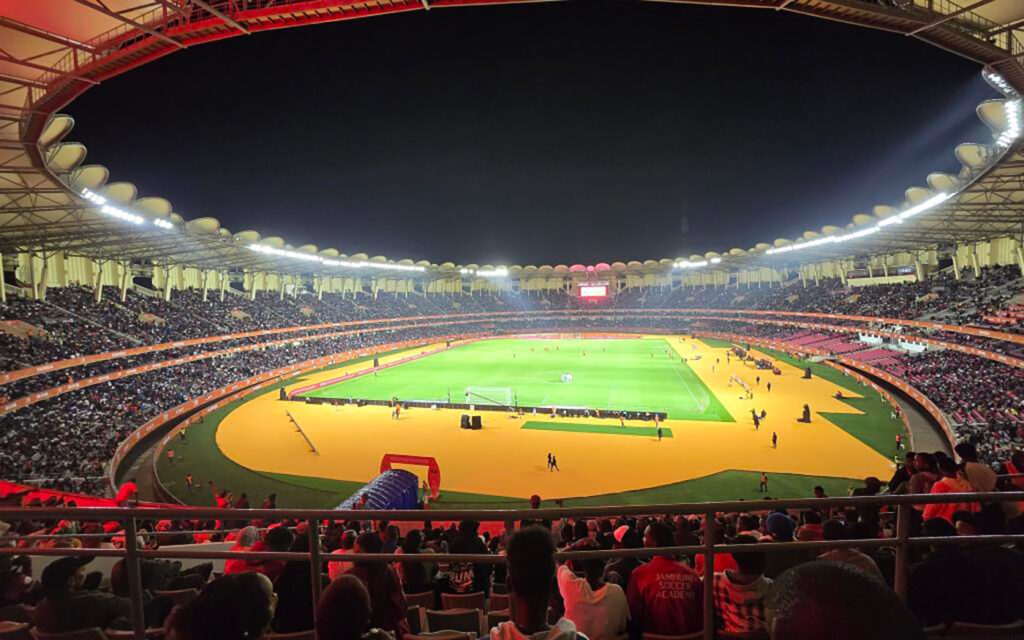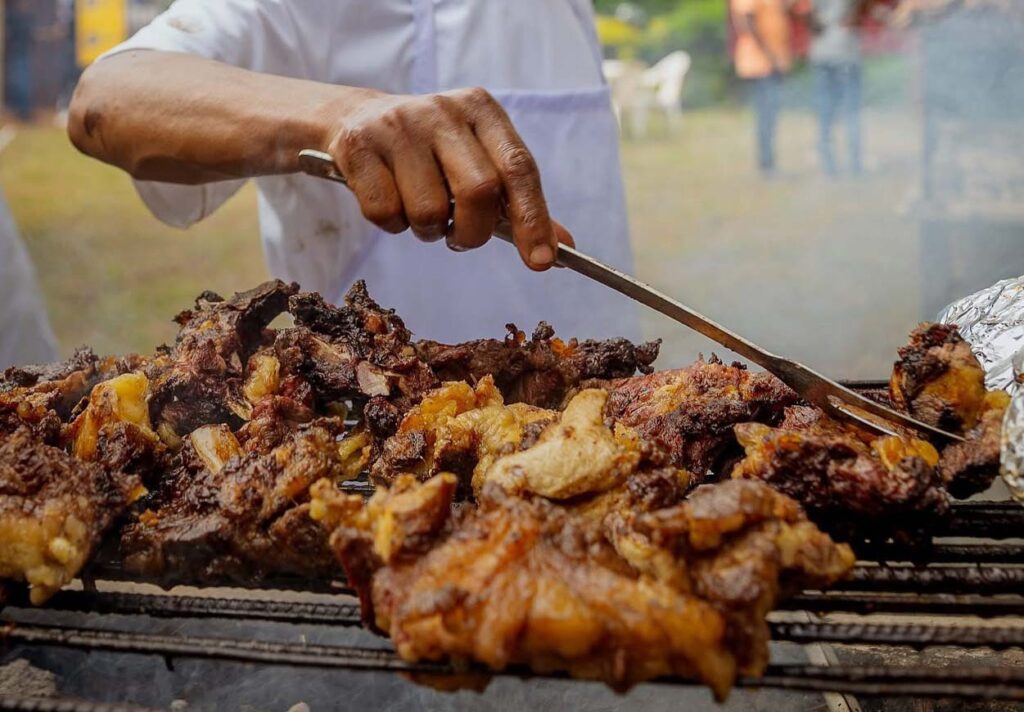Most CHAN 2024 visitors focus on match schedules and accommodations, but seasoned travelers know the real magic happens when you understand local customs and speak basic Swahili. Here’s what actually works when navigating East African culture, but the game-changer most tourists miss is how small cultural gestures create dramatically different experiences across Kenya, Tanzania, and Uganda.
Key Cultural Insights for CHAN 2024
- Ubuntu philosophy governs interactions – “I am because we are” shapes everything from business to casual conversations
- “African Time” applies everywhere except football – Events start 30-60 minutes late, but kickoff times are sacred
- Right-hand dining is non-negotiable – Left hand use shows cultural ignorance across all three countries
- Greeting elders first demonstrates respect – Age hierarchy matters more than Western visitors expect
- Conservative dress varies by region – Zanzibar requires different considerations than Nairobi’s districts
Essential Swahili That Actually Matters
Learning these specific phrases transforms you from another tourist into someone locals want to help. Most visitors memorize basic greetings, but experienced East African travelers know these make the biggest difference.
Universal Greetings Across All Countries:
- Hujambo (hoo-JAM-bo) – Formal greeting for business, elders, first meetings
- Mambo (MAM-bo) – Casual interactions with peers, vendors, younger locals
- Habari (ha-BAR-ee) – Follow greetings with “how are things?”
- Mzuri (m-ZOO-ree) – “Good/fine” response
- Asante (ah-SAN-teh) – Thank you (emphasize second syllable)
- Karibu (ka-REE-boo) – Welcome/you’re welcome
Problem-Solving Phrases: Ninataka (I want), Bei gani? (How much?), Wapi (Where?), Msaada (Help). For emergencies: Hatari (Danger), Hospitali (Hospital), Polisi (Police).
For comprehensive Swahili learning resources and pronunciation guides, the Swahili Language Resources platform offers structured lessons specifically designed for travelers.
Football Vocabulary: Mpira (Ball), Mchezo (Game), Timu (Team), Uwanja (Stadium), Shabash! (Well done!). Numbers from Moja (One) through Kumi (Ten) handle shopping situations.

Understanding Ubuntu and Time Concepts
Ubuntu – “I am because we are” – prioritizes community over individual preferences. This means group decisions take precedence, elders receive automatic respect, and hospitality extends beyond politeness. Travelers who embrace these values discover deeper connections and more authentic experiences.
“African Time” operates on relationship-based flexibility. Social events commonly start 30-60 minutes late because locals prioritize people over punctuality. However, football matches follow strict CAF scheduling – gates, buses, and ceremonies maintain international timing standards.
Dining Etiquette Locals Notice
East African dining reflects deep cultural values about community and respect. Right-hand-only eating isn’t negotiable – the left hand is considered unclean regardless of personal hygiene. Shared plates demonstrate community bonds, while rushing through meals signals disrespect.
Restaurant Protocol: Wait for seating even in casual places. Greet staff warmly before ordering. Ask about spice levels – East African cuisine can be significantly spicier than Western palates expect. Cash tips work better than credit card additions.
Regional Specialties Worth Trying: Kenya: Nyama choma (communal grilled meat), Ugali (cornmeal eaten with hands), Tusker beer Tanzania: Mishkaki (spiced meat skewers), Chips mayai (French fries omelet), Safari beer
Uganda: Rolex (chapati with eggs), Matoke (steamed bananas), Nile Special beer

Tipping and Bargaining Guidelines
Tipping customs vary significantly between countries. Kenya expects 10% at restaurants, KSh 100-200 for hotel services, KSh 500-1,000 for tour guides. Tanzania prefers 5-10% at restaurants, TZS 2,000-5,000 for hotel staff, TZS 10,000-20,000 for guides. Uganda follows similar patterns with UGX currency.
Successful Bargaining: Start with warm greetings – relationship comes before business. Counter-offer at 30-50% of asking price. Negotiate with smiles and patience. The “walk away” tactic often works but use respectfully. Never bargain at restaurants, supermarkets, or public transport.
Dress Codes by Region
Conservative dressing shows respect, but expectations vary dramatically. Kenya allows Western styles in Nairobi but requires more coverage in coastal Mombasa. Tanzania permits modest Western clothing in Dar es Salaam but demands very conservative dress in Zanzibar – cover arms and legs completely. Uganda maintains smart casual standards in Kampala with more conservative expectations in rural areas.
Stadium Attire: Team colors show support, comfortable shoes handle extensive walking, weather-appropriate clothing matters for outdoor venues.
Religious and Social Sensitivity
Christianity dominates Kenya and Uganda (60-80%), while Islam maintains significant presence in coastal Tanzania (30-40%). Mosque etiquette requires shoe removal, modest dress (long sleeves/pants), and respect for five daily prayer times. Church protocol expects smart dress and quiet behavior.
Avoid: Public displays of affection, disrespecting elders, pointing with single finger, showing foot soles, left-hand eating, and sensitive political discussions.
Communication and Social Interactions
East African communication emphasizes relationship-building over efficiency. Standard greetings include verbal welcome, firm handshakes, personal inquiries about family/health, and greeting elders first in groups.
Regional variations: Kenya accepts more direct approaches, Tanzania emphasizes pleasantries before business, Uganda features warm interactions with longer conversational expectations. The Uganda Tourism Board provides detailed cultural orientation materials for visitors seeking deeper understanding of local customs.
Gift-giving: Small home country souvenirs, quality pens, children’s books, or sweets work well. Present with both hands, don’t expect immediate opening, and be prepared for reciprocal gifts.

Football Culture and Stadium Etiquette
CHAN 2024 provides unique opportunities to experience East African football passion. Early arrival shows enthusiasm, colorful team dress demonstrates proper fan spirit, group attendance reflects football’s communal nature.
During matches: Stand for anthems, maintain positive energy without abusing opponents, share space considerately, stay hydrated. Fan interaction includes good-natured banter, avoiding personal attacks, celebrating respectfully, and post-match courtesy regardless of results.
Shopping and Market Navigation
Market etiquette: Greet vendors with “Hujambo,” browse respectfully, ask permission before photographing, purchase something if spending significant time.
Popular souvenirs: Maasai jewelry (traditional beadwork), wood carvings (ebony sculptures), Kitenge fabric (colorful textiles), quality coffee, Zanzibar spices.
Smart strategies: Buy directly from artisans, choose locally made items, check customs regulations, get certificates for expensive purchases.
Technology and Communication Etiquette
Keep phones silent in restaurants, step away for private conversations, never use during meetings, always ask permission before photographing people. Social media sensitivity requires respecting privacy, maintaining cultural awareness, showing East Africa positively, and using hashtags responsibly.
Understanding and respecting East African culture transforms CHAN 2024 from simple tourism into meaningful cultural exchange. Learning basic Swahili, following local customs, and showing genuine interest in traditions creates lasting connections that extend far beyond football. For deeper insights into Kenyan cultural heritage and historical context, explore the National Museums of Kenya collections and educational programs.
Locals appreciate sincere efforts over perfect execution, authentic curiosity over surface politeness, and cultural humility over assumed expertise.



